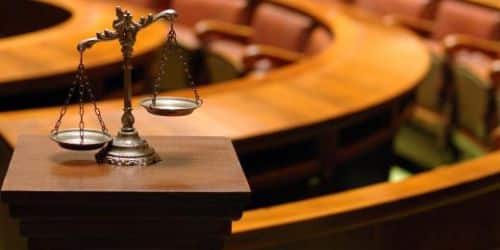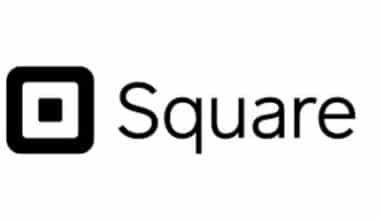Whenever a trial begins, the attorneys on both sides do everything necessary to secure a favorable verdict. This includes gathering evidence, conducting witness interviews, and, in some cases, employing a jury consultant. Jury consultant firms offer a variety of services, including gathering as much information as possible about each juror. This information provides the attorney with insight into which jurors to attempt to retain and others to discard. Continue reading for more information on the jury consultant.
What Does a Jury Consultant Do?
The Sixth Amendment of the United States Constitution guarantees criminal defendants the right to a timely, public, and impartial jury trial. The Seventh Amendment expands the jury trial right to include civil cases. A jury considers the evidence and reaches a verdict. A judge and the attorneys for both sides interview a pool of possible jurors in an effort to assemble a fair and impartial jury when a case goes to trial.
In order to increase the likelihood of a favorable outcome in court, attorneys occasionally use jury consultants. Throughout the proceedings, these experts, sometimes known as “trial consultants,” counsel and support the litigators.
Generally, jury consultants begin their work before the trial begins. They investigate each possible juror to obtain information about their past, way of life, work, family, and perspectives on key case-related matters. They use this data to develop juror profiles, providing their client with a sense of which jurors are more likely to rule in their favor. After jury selection concludes, advisors offer advice to the attorney on how to deliver his or her points during the trial.
The consultant may also conduct a trial simulation utilizing replacement jurors. This provides an indication of how the jury will vote for the attorney. Other responsibilities of a jury consultant are:
- Getting witnesses ready for trial
- Developing convincing opening and closing arguments for attorneys
- Discovering strategies to present evidence in a favorable light
- Assist attorneys in finding ways to explain complex evidence to juries so that they may comprehend it.
- Create questionnaires or opinion polls to measure community attitudes
- Interviewing jurors after the trial to determine what went wrong.
Professional Requirements to Become a Jury Consultant
No specific professional requirements exist for jury consultants. But getting a bachelor’s degree is the most common way to get started on a career path (B.S.). Consultants don’t have to study a certain field, but those who want to be consultants should study something related to law or psychology. No matter what the major is, all undergraduate programs have at least 120 credit hours of classes. Students take courses in general education as well as courses in the field they want to study.
#1. Additional Educational Requirements
Even though it’s not required, students can keep studying and get more experience in the field. Many lawyers and law firms prefer a jury consultant who has a master’s degree or Ph.D. in behavioral science, psychology, criminal justice, or sociology. Students can also do internships or clerkships in the field to learn more about it.
#2. Additional Licensing Requirements
There is no kind of license needed for the job. Consultants can join organizations for professionals that are focused on trial consulting. These groups offer benefits like access to legal libraries, lower prices for conferences held once a year, and more. Some even put employees in touch with employers who are looking to fill a job.
Where Can You Work as a Jury Consultant?
When it comes to where you can work as a jury consultant, there are two main situations. You can work for a law or consulting firm, or you can be your own boss. Consulting firms only do consult, while law firms have both a lawyer and a jury consultant working for them. Most of the time, both types of businesses hire people with more experience. These consultants only work for clients of the firm. Self-employed consultants, on the other hand, have more freedom about which jobs to take.
Consultants need to be ready for a fast-paced and demanding work environment, whether they work for a company or on their own. They spend some of their time doing research and gathering information in offices. This job could also require a lot of travel and odd hours.
How Do Jury Consultants Get Paid?
Most of the time, jury consultants are paid for the job. Each job pays between $10,000 and more than $250,000. How much a consultant makes depends on how skilled they are and how long they have been in business. The area also has an effect on how much you get paid.
Some law firms pay their jury consultant by the hour or by the year. People who work by the hour tend to make less than those who are paid a salary, but they can get overtime pay. They also work, on average, fewer hours per week. Both, though, get benefits like sick pay, vacation pay, plans for retirement, and more.
Jury Consultant Salary
The salary of a jury consultant depends on the expert’s field, level of experience, education, certifications, and other factors. A typical mock trial with a jury can cost more than $60,000. A complex electronic presentation could cost as much as $125,000. These big fees mean that jury consultants make a lot of money. As of 2019, starting salaries for consultants are around $26,000, but they can go as high as $100,000, and experienced consultants with Ph. D.s may make much more.
Law Crossing, an online job board for legal jobs, says that most trial consultant jobs are in big cities in the United States. Salaries can be very different depending on where you work and who you work for. Law Crossing says that a psychologist with a Ph.D. and a lot of experience can make between $65,000 and $110,000 as a trial consultant when they first start out. A trial consultant with a master’s degree starts out making between $50,000 and $80,000 a year. Research analyst jobs for people with no experience pay between $38,000 and $43,000.
Steps to Become a Jury Consultant
If you want to know how to become a jury consultant, you should know that not everyone gets the job in the same way. Many consultants have at least a bachelor’s degree in a related field, such as criminal justice, forensic psychology, or social science. However, before becoming consultants, many get a master’s degree, work in the court system, or become attorneys. No matter what path a graduate takes, they will need a few core skills to be a successful and in-demand jury consultant.
#1. Gain Knowledge in Law and Psychology
To be a good jury consultant, it’s not enough to do research on the demographics of potential jurors or the hidden biases they may have. Jury consultants also need to know a lot about the law and how a legal team can make their case. For the best chance of a good result, consultants need to know a lot about both psychology and the jury trial system.
When you get a degree that focuses on both psychology and criminal justice, like a bachelor’s in forensic psychology, you get a broad view and useful skills for a wide range of jobs. Learning how both a lawyer and a juror might understand and present a case helps consultants come up with a story that works for both sides. They can use the law to their advantage while painting a convincing picture for the jury.
#2. Develop Key Job Skills
Jury consultants have a wide range of tasks and responsibilities, each of which requires a different set of skills and abilities. Jury consultants need to be able to do a lot of different things, like research before a trial, help pick a jury, collect and analyze data, and give advice to a legal team. Here are some of them:
- Knowledge of how people act
- Skills for managing time and keeping things in order
- Communication skills with other people, both in writing and in person
- Know-how of the law
- Skill with research
- Competencies for planning a mock trial or survey
It can be hard to explain the psychological side of a case to a legal team, and it may go against what lawyers learned in law school about how to understand cases. Consultants can bring out the human parts of a case by planning, doing research, and having good communication skills.
#3. Get Work Experience
Even though a well-rounded education can teach graduates the theories behind the law, how people act, and what happened in past cases, it can be hard to fully understand the criminal justice system and what goes into trying a case in court without work experience. By getting real-world experience, graduates can learn how things work and put the psychological or legal theories they’ve learned in school in a more human context.
As consultants, college graduates need a wide range of skills and knowledge to give a full picture of a case. Graduates can learn a lot about how people act and how our legal system works by doing internships in criminal justice, forensic psychology, or social work.
Employment Outlook for Jury Consultants
With every high-profile trial that gets a lot of public attention, the lawyers need jury consultants to help them make their case. Even though it may take a long time to get the right education and work experience to become a jury consultant, those who do may find themselves playing an important and exciting role in important or precedent-setting cases.
The BLS predicts that there will be 116,600 more jobs in the legal field between 2020 and 2030, which is about the same as the average growth rate for all jobs combined (8 percent ). As the need for lawyers grows and law firms need to be more efficient, the BLS thinks that the job outlook for people who help lawyers will be especially good, with room for many graduates to meet the legal needs of people, businesses, and governments.
What is a Jury Work Environment?
The vast majority of juror consultants are either employed by consulting firms ranging in size from intimate boutique firms to huge, multinational corporations or operate independently as freelance consultants. In-house jury consultants are employed by some of the larger legal firms.
Do I Have to Go Back to Work After Jury Service?
An employee who is selected for jury duty is obligated to inform their employer as soon as practicable that they have been selected for jury duty, the dates on which they will require time off from work, and, if possible, the total amount of time off that they will require. If the worker is not required to appear in court, they should go back to work unless another arrangement was made in advance and agreed upon.
Who is Not Allowed to Do Jury Service?
When you are called to serve on a jury, you will be asked to fill out a form called a “summons.” On this form, you will find a list of the types of offenses that you are required to disclose before you are allowed to sit on a jury. You will be asked to disclose whether or not you have ever been convicted of a crime that resulted in a sentence of life in prison, or of imprisonment or youth custody for a period of at least five years.
Do Jurors Swear?
Before any questions are asked of the jury, every member of the jury must first swear (or affirm) that they will answer honestly. The attorneys or the court may ask prospective jurors questions about their personal lives and opinions if the subjects are relevant to the case and the jurors’ capacity to serve in an impartial and fair manner while adhering to the law.
Jury Consultant Firms
In this section of the article, we will list some notable jury consultant firms that are well-known in consulting.
#1. Mind Matters
Mind Matters is a jury consulting firm that is based in Seattle. Because we understand jurors’ thought processes, our experts can help you craft the strongest plausible argument, pick the most qualified jury, conduct a mock trial focus group analysis, and more. When it comes to understanding potential jurors in the Pacific Northwest, we have focused our efforts since 2007.
#2. Technology & eDiscovery
Our experts in litigation consulting will work with your lawyers, support staff, and witnesses to give them valuable input and research. As soon as we start working on a case, we help come up with a theme, prepare witnesses to testify in depositions and court, and run mock trials. And as jury consultants, we make questionnaires for jurors and help attorneys choose them. Think of us as an addition to your team.
Then, during the trial, we make sure that the jury gets the message about the theme. Our trial consultants even write the opening and closing statements, do research on the jurors, and put together “shadow juries” to give feedback on the arguments. We also help you make changes and changes of direction, as the case goes on.
When a case is over, our trial consultants, together with your team, do post-verdict interviews to find out which parts of the argument have been the most and least effective. This gives important information for appeals and similar commercial lawsuits that are still going on. We always take a flexible approach that is made to fit each case, timeline, and budget.
#3. Schlesinger Group
Schlesinger Trial & Jury Consulting uses the latest social science analytical tools to give its clients a unique chance to see how typical jurors will think about and react to all aspects of civil and criminal litigation before, during, and after trial.
#4. Hennington and Associates
Hennington and Associates are among the best jury consultant firms in the country for consulting trials and juries. We are a full-service Litigation Consulting Firm that helps clients all over the country win their cases. We have offices all over the country where we can help you. No matter what city you are in, we are here to help you win your trial. We helped our clients win more than 98 percent of the cases we took to the court in 2018. I know we are known all over the country for winning cases.
#4. DRC
DRC, which is based in New York City, is a national jury and trial consulting firm. We know how to handle every step of the litigation process, such as picking a jury, holding focus groups, making persuasive visual aids and graphics for trial, analyzing the media, preparing witnesses, and writing motions. DRC is the only company that has the skills to make a trial strategy that will win.
What is a Jury Required Education, Training, & Certification
The following list of education and training criteria must be met in order to be considered for the jury consultant position:
- Education: Jury consultants should have at least a bachelor’s degree, but a master’s or doctoral degree in behavioral science, sociology, political science, criminology, psychology, or another social science is normally recommended. A minimum of a bachelor’s degree is required for employment in this field. An additional degree in law may be advantageous, but it is not required.
- Experience: Jury consultants are recruited based on their years of experience, their intuitive abilities, and their knowledge of human behavior, such as previous employment in the field of psychology spanning multiple years.
How Do Mock jurors Make Money?
Sign Up Direct is a juror recruiter that operates online. After registering on their website, you will be sent invites to participate in simulated juries that are a good fit for your particular demographics. You will first listen to a case and then answer questions while participating in a simulated trial with Sign Up Direct. The average hourly wage at Sign Up Direct is roughly $12.
Does Mock Trial Look Good on a Resume?
Observing how the legal system works in a courtroom can be beneficial, even if you do not intend to practice in that area of the law. You should make the most of any opportunity that presents itself to you while you are attending law school. The experience you gain from participating in mock trials is priceless; it helps you hone your abilities, boosts your self-assurance, and looks fantastic on a CV. Jul 30, 2019
Why Use a Jury Consultant?
Experts in trial strategy and social dynamics, jury consultants know exactly what the jury wants to hear and how to deliver it in a way that will persuade them.
They are able to engage with trial teams and case witnesses to achieve a unified presentation of the client’s message to the jury by understanding the distinction between individual case evaluation and groupthink dynamics. Any competent jury consultant will work to present the case in such a way that jurors will feel compelled to choose the side of their client during deliberations.
The use of a jury consultant broadens and deepens the knowledge base of the trial team as a whole. They contribute unique expertise that helps the trial team as a whole perform better and ultimately secure a positive outcome for the client.
The specific type of jury consultant required will depend on the nature of the case, the depth of the required pre-trial investigation and the nature of the services required.
Trial consultants may gather information and get ready for trial in a variety of methods, but all seasoned consultants may help attorneys develop a winning strategy by synthesizing the information they find.
Inquire about the jury consultant’s previous work and references before hiring them. You should inquire about their success rate, as well as their research methods, how they handle witness preparation, and methods of communication. Your case will benefit from hiring the most qualified jury consultant after you’ve read that.
FAQs
How long have jury consultants been around?
Trial consulting has been around for more than 20 years, but the O.J. Simpson trial brought it and many other parts of the legal system to the attention of the American public.
How do I become a jury in Malaysia?
In Malaysia, only 7 people are called to serve on a jury. This is different from the UK, where 12 people are called to serve. Anyone over 21 is eligible to serve unless they have a mental illness or a physical disability (blindness, deafness, etc).
Can judges overrule a jury?
A judge can tell a jury what to do, but you don’t have to agree with him.






